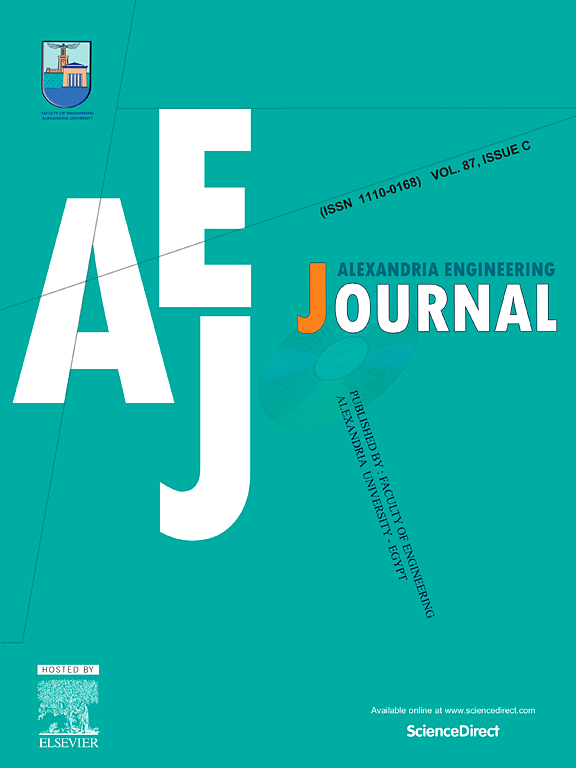综述了促进剂对甲烷干重整催化剂酸碱性、还原性和金属-载体相互作用的影响
IF 6.2
2区 工程技术
Q1 ENGINEERING, MULTIDISCIPLINARY
引用次数: 0
摘要
过去的研究已经确定了催化剂的酸碱性、还原性和金属-载体相互作用对甲烷干重整(MDR)性能的影响。本文综述了酸碱度在MDR反应中的作用,重点介绍了酸碱度对还原性和金属-载体相互作用的影响。根据加入的助剂,讨论分为稀土金属、过渡金属、贵金属和碱土金属。催化剂的酸度和碱度在MDR反应中起着至关重要的作用。Brønsted酸性位点增强催化剂的活化、还原性和金属载体相互作用,而Lewis酸性位点对CH4和CO2的活化作用更显著。然而,过高的酸度会导致还原性降低和催化剂失活增加。此外,通过碱性金属氧化物形成的碱性位点可以增强还原性、金属载体相互作用和整体催化性能。适度的碱度是有利的,因为它可以有效地调节还原性和金属-载体相互作用,而不会引起过度的金属分散或失活。了解酸碱度之间复杂的相互作用对于设计具有更好还原性、金属载体相互作用、稳定性和活性的高性能MDR催化剂至关重要。未来的研究方向包括新型启动子的开发、机器学习的结合以及催化剂失活机制的研究,以确保MDR技术的可持续性。本文章由计算机程序翻译,如有差异,请以英文原文为准。
A review to elucidate the influence of promoters on the acidity/basicity, reducibility, and metal-support interaction of catalysts in methane dry reforming
Past researches had identified the importance the acidity/basicity, reducibility, and metal-support interactions of catalyst in impacting its performances in methane dry reforming (MDR). This review provides an in-depth overview of the roles of acidity/basicity in MDR reactions, focusing on their impacts on reducibility and metal-support interactions. The discussion is categorized based on the incorporated promoter, including rare earth metals, transition metals, noble metals, and alkali earth metals. The acidity and basicity of catalysts play a crucial role in MDR reactions. Brønsted acidic sites enhance catalyst activation, reducibility, and metal-support interaction, while Lewis acidic sites facilitate CH4 and CO2 activation more prominently. However, excessive acidity can lead to reduced reducibility and increased catalyst deactivation. Also, basic sites formed via basic metal oxides can enhance reducibility, metal-support interaction, and overall catalytic performance. A moderate level of basicity is favoured, as it can effectively modulate reducibility and metal-support interaction without inducing excessive metal dispersion or deactivation. Understanding the complex interplay between acidity and basicity is essential for designing high-performance MDR catalysts with improved reducibility, metal-support interaction, stability, and activity. Future research directions include novel promoter developments, incorporation of machine learning, and investigation of catalyst deactivation mechanisms to ensure the sustainability of MDR technology.
求助全文
通过发布文献求助,成功后即可免费获取论文全文。
去求助
来源期刊

alexandria engineering journal
Engineering-General Engineering
CiteScore
11.20
自引率
4.40%
发文量
1015
审稿时长
43 days
期刊介绍:
Alexandria Engineering Journal is an international journal devoted to publishing high quality papers in the field of engineering and applied science. Alexandria Engineering Journal is cited in the Engineering Information Services (EIS) and the Chemical Abstracts (CA). The papers published in Alexandria Engineering Journal are grouped into five sections, according to the following classification:
• Mechanical, Production, Marine and Textile Engineering
• Electrical Engineering, Computer Science and Nuclear Engineering
• Civil and Architecture Engineering
• Chemical Engineering and Applied Sciences
• Environmental Engineering
 求助内容:
求助内容: 应助结果提醒方式:
应助结果提醒方式:


